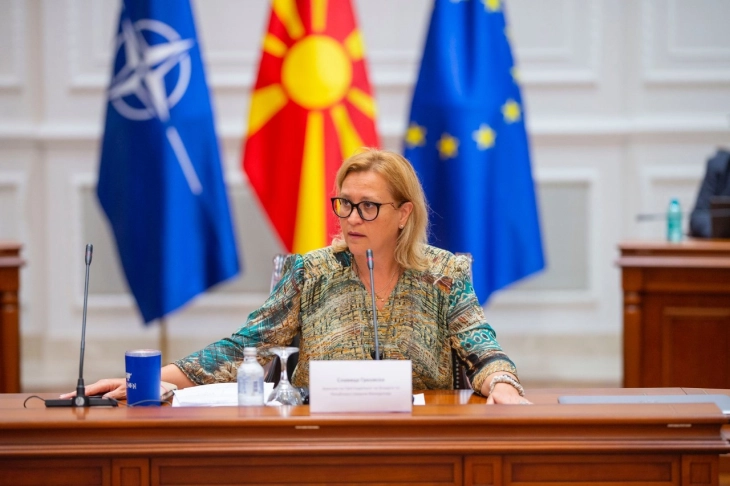Amendments to the Law on Restrictive Measures are not deemed unconstitutional, but rather serve to establish a framework for the prosecution of individuals and entities blacklisted by the United States and the United Kingdom within the existing Macedonian legal system, asserted Deputy Prime Minister of Good Governance, Slavica Grkovska, during a Telma TV appearance on Wednesday evening.
Highlighting the significance of the strategic partnership with the USA for the country, Deputy PM Grkovska emphasized the historical support provided by the United States in achieving Macedonia’s strategic objectives. She underscored the need for a consistent approach from the U.S., especially in the context of combating corruption and organized crime.
Expressing her views on the matter, Grkovska criticized the existing requirement for special requests from strategic partners, advocating for immediate prosecution of publicly ‘blacklisted’ entities under Macedonian law. She argued that the proposed amendments should serve as a catalyst for a more efficient judicial process.
Grkovska acknowledged the existing capability of prosecutors to initiate investigations based on tips, but lamented the lack of tangible progress in that regard. She asserted that the amendments aim to address this issue and spur the judiciary into more proactive action.
Addressing the concerns of those accustomed to manipulating the state, Grkovska pointed out that the reaction of fugitive Gruevski from Budapest, invoking state sovereignty and opposing the law, indicates the effectiveness of the initiated measures.
The proposed amendments to the Law on Restrictive Measures are designed to enable the imposition of domestic sanctions on individuals involved in corruption, particularly those blacklisted by the U.S. Department of State. Notable figures on this blacklist include Nikola Gruevski, Sasho Mijalkov, Ramiz Merko, Orce Kamchev, Ratka Kamcheva, and Sergey and Irina Samsonenko, all implicated in corrupt practices.





Comments are closed for this post.